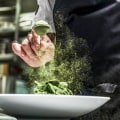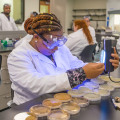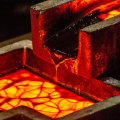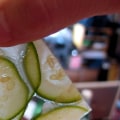Food technology is the application of food science to the selection, preservation, processing, packaging, distribution and use of safe foods. It involves the use of analytical chemistry, biotechnology, engineering, nutrition, quality control, and food safety management to understand how microorganisms interact with food. Food safety is a key area of focus in product development, as it is essential to prevent pathogens in food. Food microbiology is also an important field of food science when it comes to product development.
Food engineers develop the concepts that processors use to convert raw materials into safe, durable foods. High-pressure processing (HPP) is a non-thermal or “cold pasteurization” process developed to allow the production of fruit and vegetable juices without any of the harmful effects of heat treatments. Nutritionists often associate heat processing with detrimental effects on the nutritional quality of foods, but not always. Winsight is a leading B2B information services company focused on the food and beverage industry.
Departmental research areas are internationally recognized for their cutting-edge and industry-relevant research to protect public health, improve food quality, and achieve technological advances in the field of food science. Through master's programs, you can specialize in microbiology, food chemistry, sensory sciences, dairy product science, biochemistry, or processing. The mission of the department is to generate knowledge about food through research and to apply and disseminate knowledge through teaching and dissemination. Molecular gastronomy is a subdiscipline of food science that seeks to investigate the physical and chemical transformations of ingredients produced in the kitchen.
To work in the food science and technology industry, you must be able to communicate effectively, pay attention to detail, apply statistics, and work as a team. Food technologists research, develop and test food products, analyze crops, and apply new methods to improve food quality. All foods are biochemicals because they are or were living entities. The ability to perform analysis of food components is developed in conjunction with statistical methods of quality control.
As a Food Science student, be prepared to take food-related courses in fields such as chemistry, microbiology, nutrition science, biology, physics, agricultural science, food safety, product development, sustainable food production, and many others.







Leave a Comment